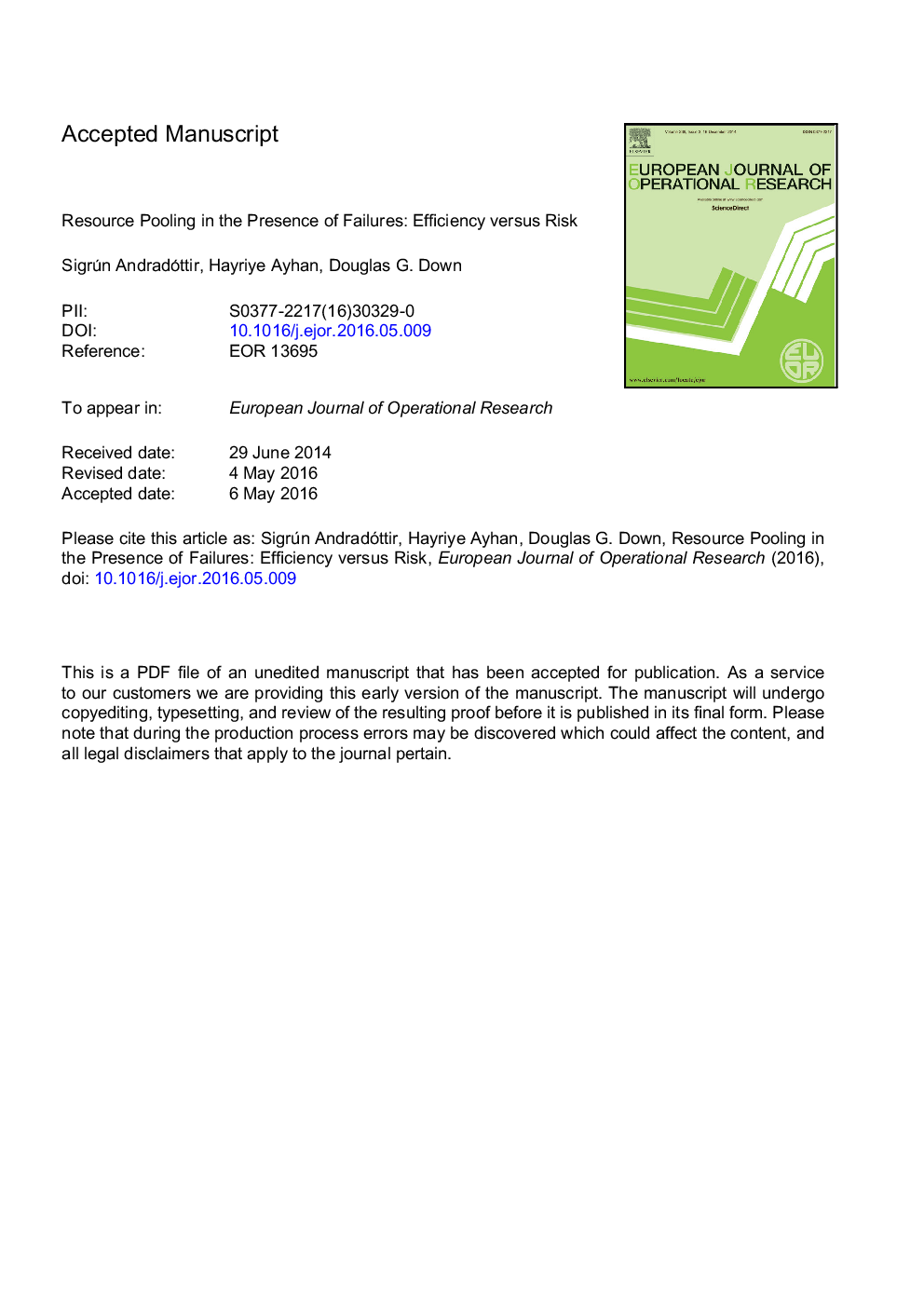| Article ID | Journal | Published Year | Pages | File Type |
|---|---|---|---|---|
| 4960103 | European Journal of Operational Research | 2017 | 30 Pages |
Abstract
This paper studies the effects of resource pooling on system performance in the presence of failures. The goal is to understand whether pooling increases efficiency and/or reduces risk. We consider four queueing systems with different degrees of pooling (one has no pooling, one has only queues pooled, one has queues and failures pooled, and one has servers pooled), estimate efficiency via the mean number of customers in each system, and assess risk via the probability that there are many customers in each system. Our results show that when servers are subject to failures, pooling queues is always beneficial, whereas pooling both queues and servers improves efficiency but also increases risk. Thus, there is a tradeoff between efficiency and risk in the presence of failures. These conclusions are different from reliable systems where pooling simultaneously improves efficiency and reduces risk and more pooling is better than less pooling (e.g., pooling queues and servers is better than pooling queues only). Thus, insights about resource pooling obtained from studying reliable systems should be used with caution in the presence of failures.
Related Topics
Physical Sciences and Engineering
Computer Science
Computer Science (General)
Authors
Sigrún Andradóttir, Hayriye Ayhan, Douglas G. Down,
